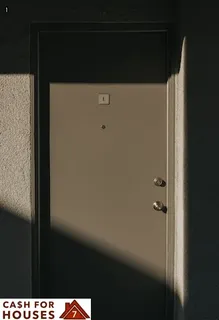When it comes to understanding the rights of squatters and trespassers in Texas, homeowners need to be aware of their own legal rights. Knowing the difference between a squatter and a trespasser is key.
Squatters are people who take possession of land or property without the owner's permission and without paying rent, while trespassers are individuals who enter your property without permission. Under Texas law, squatting is considered a form of criminal trespass and can result in criminal charges if the squatter does not leave after being asked to do so by the owner or their representative.
Homeowners have the right to ask squatters or any other unauthorized persons to vacate their property. If they fail to comply with this request, homeowners may use reasonable force such as blocking access to buildings or damage caused by the squatter in order to remove them from their land.
However, it is important for homeowners to understand that there are certain scenarios where squatters may have more rights than they think; for example, if a squatter has been living on an abandoned property for a long period of time, they may be able to claim ownership over it under adverse possession laws. Overall, understanding squatters' rights in Texas is essential for any homeowner looking to protect their property from unwanted guests.

Adverse possession laws are an important part of understanding squatters' rights in Texas. Generally, these laws allow a squatter to gain legal title to a property if they occupy it for a certain amount of time and meet specific requirements.
In the state of Texas, there are four essential elements that must be met in order to claim adverse possession: open and notorious possession, actual possession, hostile possession, and continuous possession. To qualify as “open and notorious” the squatter must have exclusive control over the land and be visible in their use of it.
In terms of “actual possession” the squatter must demonstrate some form of physical occupancy or use of the property such as planting crops or erecting structures. The third element, hostile possession, requires that the squatter has taken intentional action to possess the land with disregard for the owner's rights.
Finally, “continuous possession” demands that the squatter live on or otherwise use the land consistently over a period of at least 10 years. Homeowners should be aware of these important laws when dealing with potential squatters in order to protect their property rights in Texas.
Colour of Title is a legal concept that plays an important role in determining the rights of squatters in Texas. It is defined as any open, notorious, and continuous possession of land for at least ten years under a claim of right or title, either written or verbal, not founded on a lawful conveyance from the owner.
In other words, it occurs when someone occupies and uses a piece of land over a period of time with the intention to make it their own. This type of occupancy is often seen in squatter cases where people take possession of another person's property without their knowledge or consent.
In order to make sure that squatters do not gain Color of Title (and thus become the rightful owners) homeowners must understand the laws governing such situations and act quickly when they discover unauthorized occupancy on their property.

When it comes to the property tax implications of squatters in Texas, homeowners must be aware of any potential financial impacts. Depending on the situation, squatters may be required to pay a portion of the property taxes depending on their residency status.
In general, if a squatter has been living in a residence for at least six months, they are eligible to pay taxes on the property and must do so according to state regulations. Additionally, if squatters are able to prove that they are occupying the premises with an owner’s consent or authority, then they may be able to claim ownership rights and pay taxes accordingly.
Homeowners must also consider that if a squatter has been living in their residence for more than two years without dispute, they can potentially gain title to the property and become liable for all associated taxes. Unfortunately, this means that homeowners could be responsible for any unpaid back taxes due from the squatter - making it essential to understand squatters' rights before attempting to evict them from a residence.
Navigating the Squatter's Law in Texas can be a daunting task, especially for homeowners unfamiliar with the legalities and regulations. A comprehensive guide to understanding squatters' rights in Texas is essential for anyone wishing to protect their property from unauthorized occupants.
Knowing one's rights is key when dealing with a squatter situation and there are several steps to take including understanding applicable laws, researching relevant cases and obtaining legal advice as needed. It is also important for landlords to be aware of any local ordinances that may apply, such as those regarding tenant eviction procedures.
Additionally, being aware of the consequences of not addressing the issue promptly can help ensure swift and just resolution of any dispute that may arise. Taking all these factors into consideration will give homeowners the knowledge necessary to navigate the Squatter's Law in Texas confidently and successfully.

Texas property owners have the right to protect their homes from unwanted guests. Squatters, or people who illegally occupy a home without permission, can be a major nuisance and problem for homeowners in Texas.
The best way to keep squatters out of your home is by staying informed about your legal rights regarding trespassers. Understanding the laws about squatting in Texas can help you take proactive steps to prevent squatters from entering your property.
Homeowners should also be aware of strategies such as posting no trespassing signs and keeping the property well-maintained to deter potential squatters. Additionally, documenting any suspicious activity on the premises may help prove that an individual is engaging in illegal behavior if they are already living on the property.
Finally, homeowners should contact law enforcement if there is any evidence that an individual may be illegally occupying their home in Texas. Taking these precautions will ensure that Texas homeowners remain well-protected against unwanted intruders and can enjoy their own space without fear of a squatter taking up residence on their land.
When it comes to evicting a squatter in Texas, there are several legal requirements that must be met. First and foremost, the homeowner must provide the squatter with at least three days written notice before taking legal action.
This notice should include the date of eviction as well as inform them of their right to contest the eviction in court. Additionally, the homeowner is required to file an Unlawful Detainer Action suit in their local District/County court and serve it upon the squatter.
During this process, the homeowner is responsible for providing proof that they legally own the property and that they are being unlawfully occupied by a squatter. Lastly, if all conditions have been met and the court rules in favor of the homeowner, then an eviction order will be issued which grants the sheriff’s department permission to physically remove the squatter from their property if necessary.

In Texas, squatters have certain rights that are protected by the law. Knowing what these rights are can help homeowners understand how to manage any issues they may have with squatters on their property.
Generally speaking, squatters who occupy a property for a period of time (which varies depending on the situation) can gain legal possession of it if they meet certain conditions. These conditions include occupation without knowledge of the rightful owner, payment of property taxes and improvement of the property.
In addition, Texas laws state that those who are in possession of a property for more than three years may be entitled to compensation from the rightful owner if they are removed from the premises. Understanding these rights is essential for homeowners so they can take appropriate action when dealing with any issues related to squatting on their property.
It is important for landlords and property owners in Texas to understand the best practices for preventing unauthorized occupancy on their rental properties. The key to doing this is to be proactive and stay informed of the local regulations regarding squatters’ rights in Texas.
This might include being aware of any applicable laws that protect the rights of squatters and establishing clear lease conditions regarding occupancy, such as specifying who can occupy the property, including family members or other third parties. Landlords should also consider taking additional steps such as changing locks when a tenant vacates the property or conducting regular inspections of their property so they are aware if someone has taken up residence without their authorization.
Furthermore, landlords should familiarize themselves with legal remedies available for evicting squatters as soon as possible if they do take up residence on their property, as well as understand what steps would need to be taken in this situation. Ultimately, being knowledgeable about squatters' rights in Texas and following best practices for preventing unauthorized occupancy can help landlords protect their rental properties from illegal occupation.

It is important to understand your rights and responsibilities as a homeowner when it comes to legally removing a squatter from your home or land. The first step is to prove the person is a squatter, which means they do not have permission or legal right to be on the property.
This can be done by gathering evidence such as photographs of the individual living in or using the property, eyewitness testimony or documents that show proof of ownership. Once this is established, you are able to take legal action against the squatter.
You must serve them with an eviction notice and follow local laws regarding evicting individuals from residential properties. In some cases, you may need to appear in court and file a lawsuit if they refuse to leave.
After taking all necessary steps and obtaining a court ruling that allows you to remove the squatter from your property, you may then contact law enforcement for assistance with escorting them off the premises. It's important to make sure that all legal steps are taken when attempting to remove a squatter from residential property so that you are within your rights as a homeowner and avoid any potential complications in the future.
Understanding adverse possession claims is an important part of understanding squatters' rights in Texas. Adverse possession is a legal concept that allows someone to gain ownership rights to a property if they have occupied it for a certain period of time, usually 10-20 years.
In order to claim the property through adverse possession, the squatter must demonstrate that they are occupying the land without the owner's permission and with the intention of gaining full ownership. They must also show that they have been openly and continuously occupying the land for at least 10 years, and paying any taxes or fees associated with it.
Additionally, they must also prove that their presence on the land does not interfere with any other person's use of it. If all criteria are met, then a court may grant the squatter title to the property.
It's important for homeowners in Texas to understand these concepts so they can protect their property from squatters and ensure their rights are respected.
Yes, it is possible to evict a squatter in Texas. Homeowners must follow specific procedures in order to legally remove squatters.
According to the Texas Property Code, a squatter must be served with a notice of eviction that gives them three days to vacate the property or face further legal action. During this period, homeowners can file an eviction lawsuit in court if necessary.
To ensure that all steps are followed correctly, it is advisable for homeowners to seek assistance from a lawyer who is familiar with the laws regarding squatters' rights in Texas. Following an eviction procedure properly will help homeowners avoid being charged with illegal eviction, which could result in criminal penalties or civil damages.
Understanding the legal rights of both parties involved will help ensure that evictions are completed safely and effectively.

In Texas, the length of time a squatter can stay in someone's home varies depending on the circumstances. Generally, squatters must vacate the property as soon as they are given a written notice to do so.
If the squatter refuses to leave, then the homeowner may have to take legal action in order to evict them. The length of time this process takes will depend on how quickly the homeowner is able to file their eviction paperwork with their local court and how quickly the court can hear their case.
While it is possible for squatters to remain in someone's home for an extended period of time, it is important for homeowners to understand their rights when dealing with squatters and act quickly if they want them removed from the property.
In Texas, claiming squatters' rights is an important legal process to understand. Squatters' rights, or adverse possession, can be claimed in Texas by meeting certain requirements.
Generally speaking, an individual must prove that they have been in open and continuous possession of the land for at least three years. Additionally, the individual must demonstrate that they have maintained the property and paid taxes on it during this time period.
Furthermore, they must show that they made improvements to the property, such as fencing or building structures. Finally, the individual must also prove that they did not enter onto the land maliciously or with criminal intent.
Once all of these requirements are met and documented properly with a court of law, an individual can claim their squatters' rights in Texas and take ownership of the property.
In Texas, squatters rights can take some time to acquire, depending on the situation. Generally, a squatter must prove that he or she has been in possession of the property for at least three years before they can apply for official recognition of their rights.
This means that they must be able to show evidence of living in the property without interruption or interference from the owner. Additionally, if a squatter is unable to prove occupancy for three years, it may still be possible to gain rights through adverse possession if certain other requirements are met.
These include providing proof of payment for taxes and utilities associated with the property, making improvements to the land in question, and taking other steps which demonstrate an intent to possess the property. Though it can take some time to get squatters rights in Texas, understanding the legal process is essential in order to protect your interests as an owner or tenant.